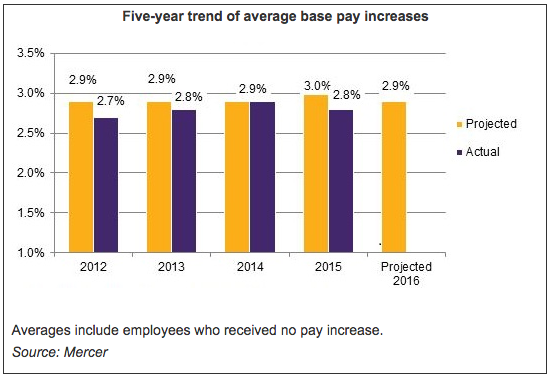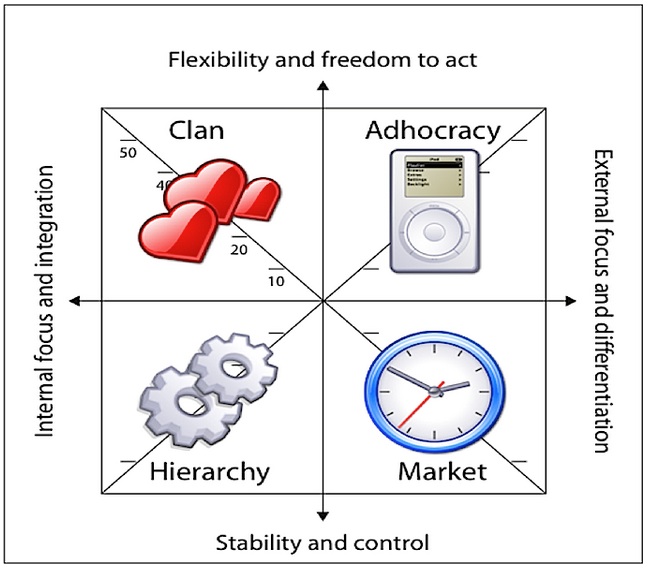
by Di Ann Sanchez, PhD | Apr 4, 2016 | Talent Managment
Cultural intelligence: an outsider’s seemingly natural ability to interpret someone’s unfamiliar and ambiguous gestures the way that person’s compatriots would (Earley & Mosakowski, 2004).
Companies also have cultures that are often distinctive. Employees learn how to decipher the cultural code of their company over time through historical stories, environmental clues, geographic regions, meetings, etc. Organizational departments can also have their unique culture as well.
“Cultural intelligence is related to emotional intelligence, but it picks up where emotional intelligence leaves off. A person with high emotional intelligence grasps what makes us human and at the same time what makes each of us different from one another. A person with high cultural intelligence can somehow comprehend a person’s or group’s behavior those features that would be true of all people and all groups, those peculiar to this person or this group, and those that are neither universal nor idiosyncratic (Earley & Masakowski, 2004)”. One critical element that cultural intelligence and emotional intelligence do share is, in psychologist Daniel Goleman’s words, “a propensity to suspend judgment—to think before acting.” People who are somewhat detached from their culture can more easily adopt the mores and even the body language of an unfamiliar host.

by Di Ann Sanchez, PhD | Mar 21, 2016 | Talent Managment
Video recruiting is the 21st-century method during the hiring process at organizations. Video interviewing take two forms—live conversations between the recruiter or hiring manager and the candidate. Live interviews give hiring managers an opportunity to see and talk to candidates directly and real-time which resembles the traditional face-to-face interview. The other option is a computer controlled timing program with a specific set of interview questions, timing, answers recorded and sent to the hiring manager. (i.e. https://www.hirevue.com/). In video interviews, hiring managers can create recorded questions for the candidate to answer or provide written responses. This allows the candidate to answers the interview questions at their convenience.
The A recent Aberdeen Report states that 61% of organizations are more likely to use video recruiting during their hiring process. Video recruiting makes sense for business because it reduces time to hire, saves money on the recruiting process, travel costs and can be easily achieved.
Here are three best practices to consider in implementing a video recruiting strategy:
- Ask relevant questions. Ask candidates relevant questions is essential for determining whether they are the right fit for an organization. Questions that draw out the candidates’ experience and accomplishments will provide the best insight. Asking candidates to describe how they might handle a potential challenge within their new role will be more informative than asking about their most recent job title.
- Establish recording parameters. Video interviewing systems can provide some options for recording a candidate’s responses. Employers can allow candidates to record as many takes as they want, can designate a set number of takes, or can require the candidate to submit his or her first response. Organizations might find that getting an answer on the first take gives them the most accurate impression.
- Assess content, not video quality. The key is to focus on the content of the interview answers, not whether the candidate is a great video interviewer. Many candidates may not have had to use equipment that was given to them for the interview and may be apprehensive. Consequently, recruiters should pay attention to body language, eye contact, and the content of responses.

by Di Ann Sanchez, PhD | Mar 7, 2016 | Talent Managment
Reference checking is an important step in the hiring process. Organizations that conduct reference checks should tailor questions to the job being filled for and ask open-ended questions. Supervisors of the applicant are the best sources for information on the candidate because of their past daily interaction. Human Resources will only give you information on the date of hire, date of termination and if the applicant is rehireable.
Common questions asked of references include:
- What were the individual’s job responsibilities and salary?
- Was the individual successful in his or her role at your organization? Why or why not?
- What was it like to supervise the person?
- Was the person a valuable member of the team? Why or why not?
- What unique skills did the individual bring to your organization?
- What were his or her strengths?
- What were his or her weaknesses or areas that needed improvement?
- Was the person ever disciplined, and what were the circumstances?
- Do you think the individual is suitable for the job being applied for?
- Why did the person leave your organization?
- Would you rehire the person? Why or why not?
References: Mauer, R (12/16/2015) Reference Check Checkup, SHRM.org

by Di Ann Sanchez, PhD | Mar 3, 2016 | Company News, Training
Employment law governs the rights and duties between employers and workers. Also referred to as labor law, these rules are primarily designed to keep workers safe and make sure they are treated fairly, although laws are in place to protect employers’ interests as well. Employment laws are based on federal and state constitutions, legislation, administrative rules, and court opinions.
Discrimination in the workplace is another basis for many employment law cases. The Civil Rights Act of 1964 and subsequent legislation makes it illegal to treat workers differently based on ethnicity, religious beliefs, gender, age, or disability.
Employers are required to understand the employment laws that govern their organizations. Several government agencies are involved in compliance of these employment laws.
Date: April 6, 2016
Time: 1:00 pm EST
Duration: 60 minutes
Speaker: Di Ann Sanches, PhD, SPHR, SHRM-SCP
Registration: https://compliance.world/webinars
Register today! Discounts available for multiple attendees!

by Di Ann Sanchez, PhD | Feb 22, 2016 | Hispanic/Latino Millennial, Talent Managment
Experts in Business (Future of Work Symposium) have several predictions for the next few years that may change the face of the workplace. Here they are:
- Technology – will be positive for business because it facilitates communication and collaboration on a daily basis. This can result in a more engaged and productive workplace.
- Freelancers – the rise of the contingent workforce will change the old employer-employee relationships. Freelancers will work the “gig economy” to build skills and experience while determining whether they are interested in a company employment situation. People are looking to supplement their incomes, consider themselves entrepreneurs and are searching for flexible work arrangements. In fact, according to a study by Elance-oDesk, Freelancing in America: A National Survey of the New Workforce, 53 million Americans are now freelancing. And 69 percent say technology is aiding their ability to do so.
- Business intelligence – currently 39% of organizations are doing some form of business intelligence analytics. Data-driven insights are imperative for organizations to remain competitive.
- Emerging economies – Asian and Middle Eastern markets continue to increase, and global talent will be a shortage due to the aging workforce. Companies will be looking to upskill workers to maintain competitive advantage, and those skilled employees can expect to see wages rise as talent shortages in certain regions drives salaries up.
- Millennials – the Gen Y factor is a live and well. It is anticipated by 2020, 50% of the Global Workforce will be Millennials. This will change the face of the workforce and well as the markets. The Gen Y’ers are already changing the workplace but will do so by the sheer momentum of their numbers.
- Leadership – leaders have traditionally been selected based on experience, company knowledge, and loyalty. This will not be the 21st criteria for organizations. Organizations are looking for more inspirational and collaborative leaders. Leaders will be expected to communicate (both in person and through technology) more with employees and have less hierarchal management style.

by Di Ann Sanchez, PhD | Feb 12, 2016 | Millennials, Talent Managment
The Results Are In! Just in Time for Valentine’s Day.
Vault conducted an office romance survey every year, and the results are surprising. Office romances are becoming more acceptable in U.S. organizations. This year’s survey had 2,274 participants. Only 5% of respondents believed that NO office romances were appropriate. This is down from 2011 which was 9%. Furthermore, 29% of respondents believed that all romances in the workplace were appropriate, even those with their manager.
Get this! Human Resources professionals are among the most likely to have had some kind of romantic relations with a colleague!
Office spouses are another important factor in the workplace and found to be very important to employees because they can confide in someone to discuss workplace issues.

by Di Ann Sanchez, PhD | Feb 1, 2016 | Compensation, Hispanic/Latino Millennial
According to Mercer’s 2015/2016 U.S. Compensation Planning Survey, the average salary increase budget is expected to be 2.9 percent in 2016, up slightly from the average increase budget of 2.8 percent in 2015.
The survey includes responses from 1,504 midsize and large employers across the U.S. and reflects pay practices for more than 17 million employees.

by Di Ann Sanchez, PhD | Jan 24, 2016 | Talent Managment
The Department of Labor’s (DOL) proposed changes to the overtime regulations under the Fair Labor Standards Act (FLSA) but have not been officially approved by the President. In the meantime, please review the list below to prepare for what may lie ahead:Significant...

by Di Ann Sanchez, PhD | Jan 7, 2016 | Hispanic/Latino Millennial
According to Robert E. Quinn and Kim S. Cameron at the University of Michigan at Ann Arbor, there are four types of organizational culture: Clan, Adhocracy, Market, and Hierarchy. Quinn and Cameron associate the lower two cultures (Hierarchy and Market) with a...

by Di Ann Sanchez, PhD | Jan 3, 2016 | Talent Managment
Small employers (those with fewer than 50 FTEs) with a self-insured health plan must complete and file Forms 1095-B (Health Coverage) and 1094-B (accompanying transmittal form) with the IRS, as well as provide employees—specifically, those who are taxpayers...










